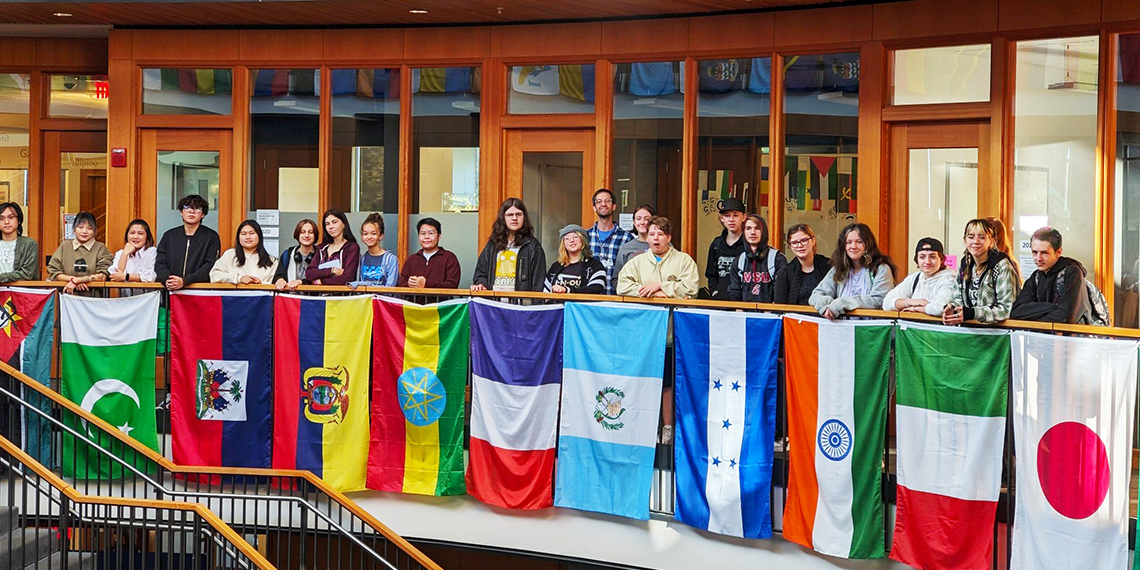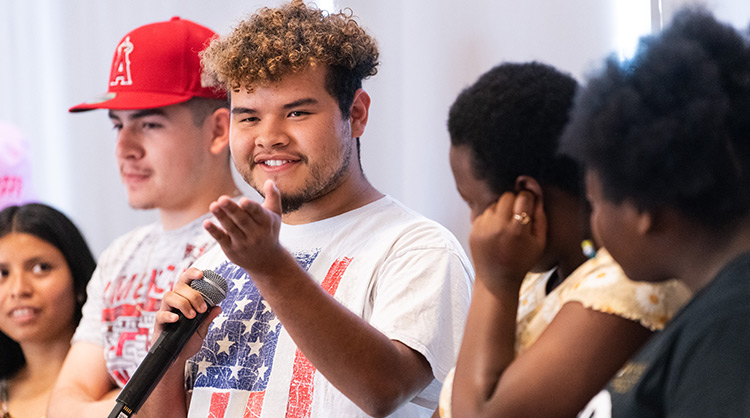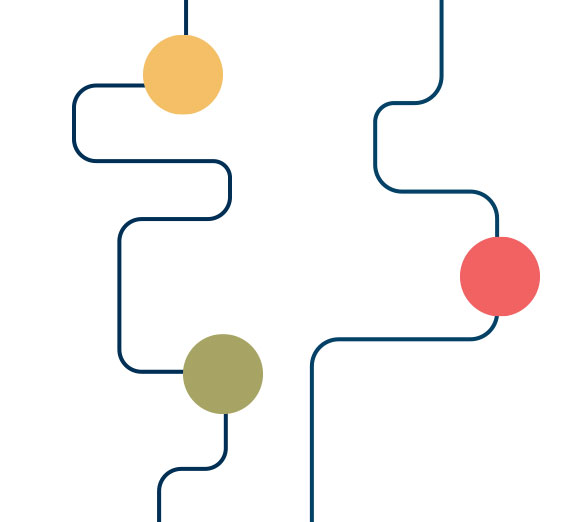Classrooms Without Borders
New certificate program helps local K-12 educators bridge language gap with students learning English

Gonzaga University and Spokane Public Schools (SPS) have partnered to create a new pathway for K-12 educators to better support multilingual students and earn their English Language Learner (ELL) endorsement.
In Spokane, a gateway city for refugees where about 70 languages are spoken among students, the program looks to fill a critical need in the school district. Some states, like California, require all teachers to have an ELL endorsement, but currently only about 7% of teachers in Spokane have the accreditation.
“We started to ask how we could make an endorsement program more affordable to teachers who are already in service,” says Heather Richardson, director of English Language Development at SPS.
Richardson worked closely with James Hunter, director of Gonzaga’s Teaching English to Speakers of Other Languages (TESOL) programs, to bring the new offering to fruition.
In the past, the ELL endorsement was available only to students enrolled in degree programs at Gonzaga. This meant the only way working teachers could attain the accreditation was to enroll in the Masters of Arts in TESOL. For educators who wanted to learn the skills but not necessarily specialize in TESOL, the cost – both in terms of money and time – was often too high, especially since many already carried graduate-level teaching degrees.
Hunter, Richardson and Naomi Hagen, who also works at SPS, created a proposal to offer an à la cart option for the ELL endorsement a few years ago. But at the time, Gonzaga didn’t have a campus-wide continuing education model for non-degree programs, so the idea stalled.
With the launch of Gonzaga’s Center for Lifelong Learning (CLL) in September 2022, that changed.
“Suddenly, we had somebody driving continuing education at the university, who was a really a go-getter,” says Hunter, referring to CLL director Rachelle Strawther. “It took off at that point.”
The first ELL certificate cohort began classes last summer and will graduate in December 2024. Through a combination of classroom learning, real-world practice and interaction with a diverse peer group, students gain the knowledge and skills to create more equitable classroom experiences for English language learners.
The courses are cross listed, meaning participants in the certificate program share classes with undergraduate and graduate students.
“What happened over the summer was kind of magical,” says Strawther, who held a focus group with Hunter to gather feedback from students after their few months in the program. “We had seasoned teachers working alongside emerging teachers, so organic mentoring occurred. When that happens naturally in a class, it’s really cool to see.”
Enrollees in the first ELL certificate cohort include an elementary teacher, a special education teacher, a mentor teacher and a Spanish immersion teacher, to name a few.
One of the students, Wesley Schantz teaches math at The Community School, an “option school” for Spokane students seeking an interdisciplinary, project-based alternative to traditional high schools. Currently the school has no students who speak English as their second language, which is precisely why he signed up for the ELL program.
“We want to let students from diverse backgrounds know this is a place for them, and broaden our reach within the district,” says Schantz.
Building on a longstanding partnership
Each July, dozens of buses arrive on the Gonzaga campus carrying hundreds of multilingual students from across the Spokane school district. They come to attend Gonzaga’s Summer Language Program, a multiweek camp which has been running over 20 years and offers STEM-based ESL classes.
For Gonzaga TESOL students, who help lead the classes alongside SPS teachers, the program offers invaluable hands-on teaching experience. For local children, it’s an opportunity to engage with the Gonzaga campus, make friends and learn about STEM in an inclusive setting.
This summer marked the first year ELL certificate students participated. For Schantz, it’s been a highlight of his experience at Gonzaga.
“I learned a lot working with other teachers and had a lot of fun with it,” says Schantz. “I helped lead a math-focused class for ninth and tenth graders. For me, as a math teacher, it was great to practice teaching the subject to multilingual students.”

Expanding opportunities
Over the years, Richardson, who hires English language development educators for SPS, noticed that Gonzaga graduates were particularly well-prepared for teaching positions – thanks in large part to skills they’d gained through opportunities like the Summer Language Program.
“They had experience with the types of strategies that would help bridge the language gap, and they were doing a great job teaching kids,” says Richardson.
SPS reached out to Gonzaga specifically to build out a certificate option for the ELL endorsement.
“The instructors are of high quality, and the curriculum is really aligned with the needs of our students,” says Richardson.
For Hunter, who’s taught ESL at Gonzaga for over 20 years, that curriculum maps back to Gonzaga’s broader mission as university.
“One of the things I love about Gonzaga is that we can look at ESL teaching through an Ignatian pedagogical lens, which means you must understand context. And context is such an important part of the education of multilinguals – understanding who they are and what assets they bring to the educational process.”
He uses the example of a hypothetical Marshallese student who brings a tremendous understanding of family network structures and collaborative learning.
“Instinctively, that’s how this student learns. And that’s incredibly valuable to have in your classroom, if you know how to look for it as a teacher.”
With the development of the ELL certificate, more teachers will know where to look.
“A program like this allows us to expand who can learn and grow at Gonzaga,” says Strawther, who’s developed several new certificate programs at Gonzaga. “I think about continuing education as making our doors wider and taller. It's about creating more pathways for people to gain new skillsets.”
- Diversity & Inclusion
- School of Education
- Master of Arts in Teaching English as a Second Language (MA|TESL)




